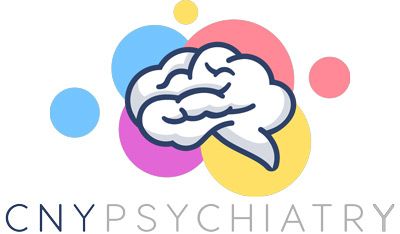The Effects of Stress on Anxiety & How TMS Therapy Can Help
Jason Stepkovitch, MD • November 8, 2022

If you suffer from anxiety, you probably know that it can affect your health in ways that may surprise you. Stress and anxiety have been linked to several conditions, including heart disease and cancer – diseases that can be tough to fight against if you're already trying to manage stress and anxiety on top of everything else.
Fortunately, TMS therapy offers an alternative approach for treating stress and anxiety – without the side effects of other medications. Here's how stress affects anxiety and what TMS therapy can do about it.
Introduction to Stress
November is the month for International Stress Awareness--a vital cause dedicated to highlighting the importance of leading a fulfilling life. Bringing awareness to stress reminds us that there are situations in life that are out of our control and that there are serious health concerns associated with stress if we don't learn how to manage it effectively.
The World Health Organization defines stress as "any type of change that causes physical, emotional or psychological strain." Stress happens to your body when it demands your attention to a particular detail or circumstance. Everybody experiences it in some form or another.
People manifest stress in a variety of ways. A few common examples are anxiety, heartburn, trouble sleeping, changes in eating habits, difficulty focusing, increased use of alcohol and tobacco, fatigue, and the list goes on.
Understanding the Impact of Stress
The American Psychological Association conducted a survey about Stress in America. People reported the following symptoms related to their stress:
- 36% experience heightened nervousness or anxiousness
- 35% feel anger or irritability
- 45% have difficulty sleeping
Small doses of stress can be beneficial for performing tasks or self-protection, but large amounts can persistently trigger the fight, flee, or freeze response. When this happens, your body produces adrenaline and cortisol, the fight-flight-freeze hormones that give your body the energy it needs to act against a perceived threat.
Typically, this response fades relatively quickly. However, when the body continues to stay "revved up" in this way, physical and mental symptoms can worsen if not managed properly.
Stress awareness is essential because it can help people identify what stresses them, what causes their stress, and how to take steps toward recovery.
What is Anxiety?
Anxiety is a mental health condition that can have debilitating effects on a person's life. Symptoms include insomnia, shakiness, persistent worry or sense of dread, increased heart rate, difficulty concentrating, and more.
There are many different types of anxiety, including generalized anxiety disorder (GAD), social anxiety disorder (SAD), obsessive-compulsive disorder (OCD), and post-traumatic stress disorder (PTSD). Stress is commonly linked to these disorders.
The Link Between Stress and Anxiety
As the American Psychological Association says, "There's a fine line between stress and anxiety."
While both are internal, emotional responses to a trigger, stress typically comes from an external stimulus such as a pending work deadline, an argument with a friend, or more long-term events like a chronic illness. Anxiety differs because it is defined by excessive worry that does not dissipate after a stressor is gone or exists without any external trigger.
Anxiety and stress result in similar symptoms, such as difficulty sleeping, fatigue, irritability, muscle tension, and difficulty concentrating.

How TMS Therapy Can Help Relieve Stress & Anxiety
Mild stress and anxiety symptoms respond well to coping mechanisms like a nutritious diet, exercise, or good sleep. However, if stress doesn't respond to these stress management strategies, or the symptoms impact your ability to function, it may be time to reach out to a mental health professional for help.
At CNY TMS, we offer Transcranial Magnetic Stimulation--also known as TMS. TMS is a painless, noninvasive procedure that transmits magnetic pulses into the brain to alter nerve activity and help regulate mood.
For most people, there is a biological component involved in their anxiety symptoms. This biological component typically manifests in abnormalities in the brain's prefrontal cortex. TMS focuses on this area to relieve symptoms, especially for those who have not responded well to traditional interventions like medication.
Many people feel relief as soon as the first TMS treatment, while others notice a significant improvement after the first few.
Find the Relief You Deserve with CNY TMS
In honor of Stress Awareness this month, we hope you'll take the time to learn more about how stress and anxiety manifest in your life and how TMS therapy can help.
If you live near Marcellus or Endicott, New York, the
CNY TMS team can help you cultivate a purpose-filled life. Please don't hesitate to contact us via email at info@cnytms.com or by phone at 315-671-2140.




